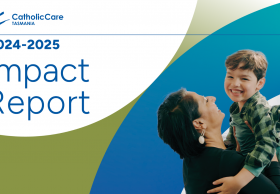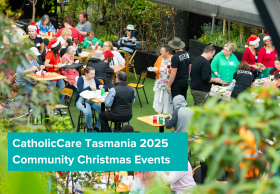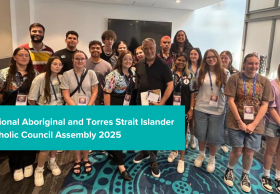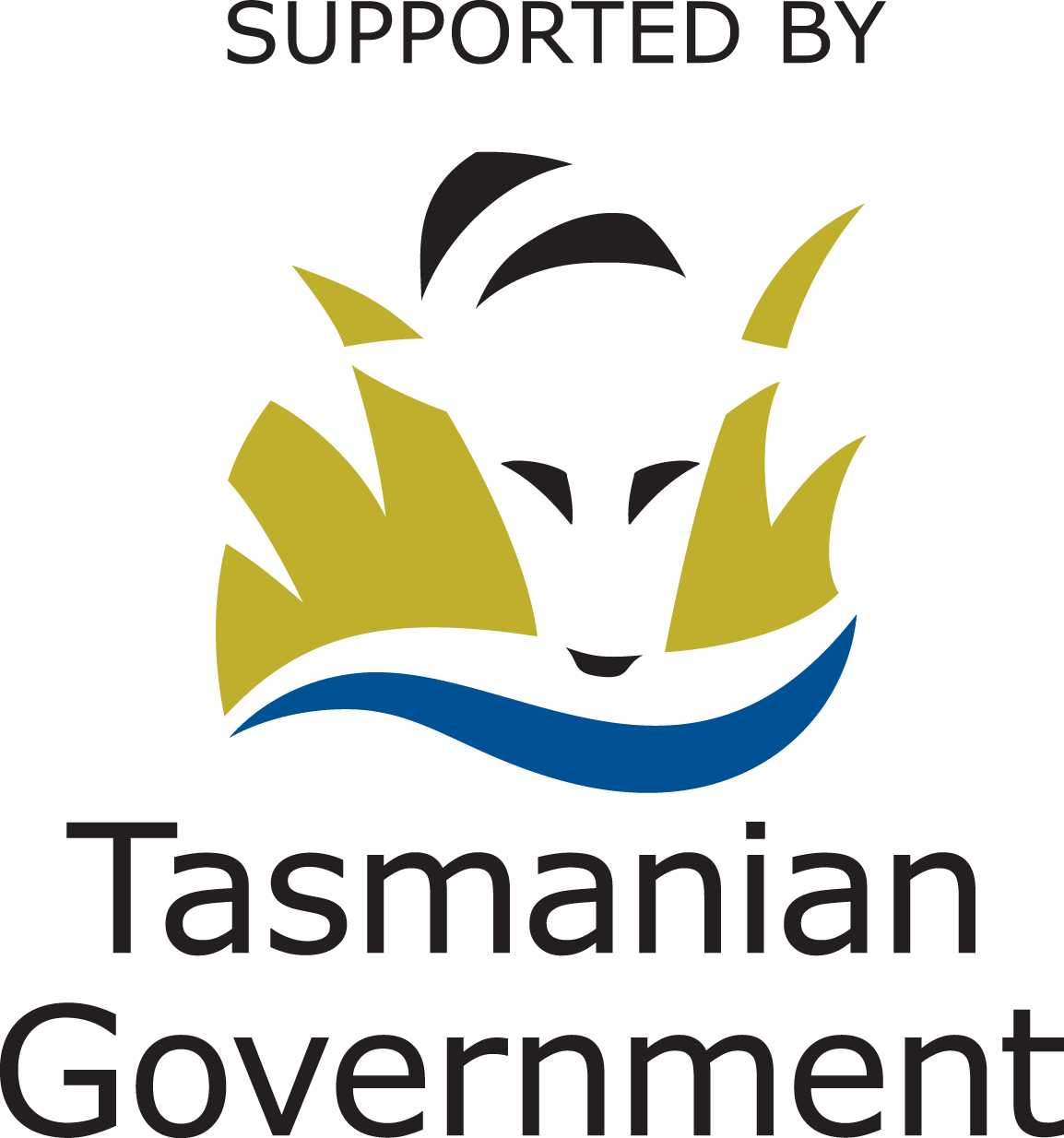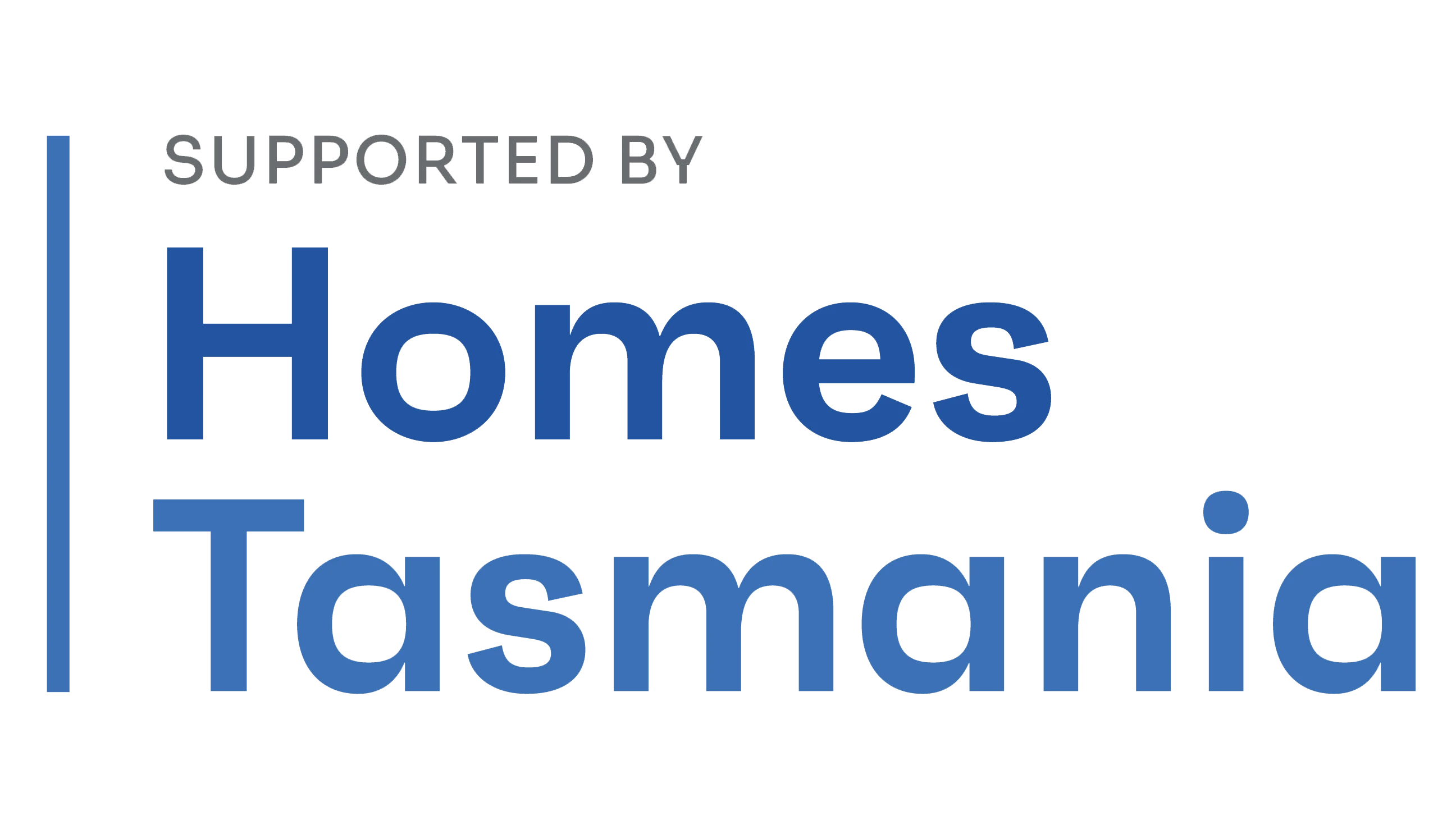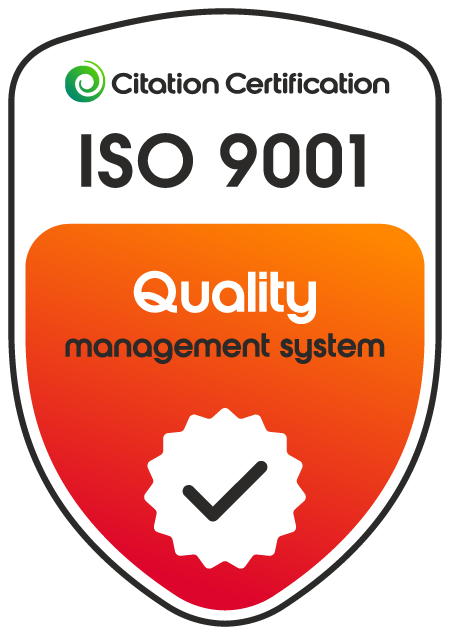CatholicCare Tasmania Educators must be courageous and “think outside the box” as they support children in becoming responsible social citizens.
That is the message of early childhood consultant Dr Deborah Harcourt, who conducted a training session with CatholicCare staff to share her research into child-centred decision-making.
“I have a strong focus on children’s well-being, and how we can focus on ensuring that we are growing good humans – children who know what it is like to be kind and generous and mindful; and who can be critical thinkers,” Dr Harcourt said.
“This is what we call leaning into 21st century skills.”
Dr Harcourt, who has worked in the field of early childhood education for the past 35 years in Australia, Singapore, China, Malaysia, India, Indonesia, UAE, UK, and Sri Lanka, said it was critically important to focus not just on early learning framework outcomes such as numeracy and literacy, but also on skills including self-awareness, impulse control, focus and attention, and social competence.
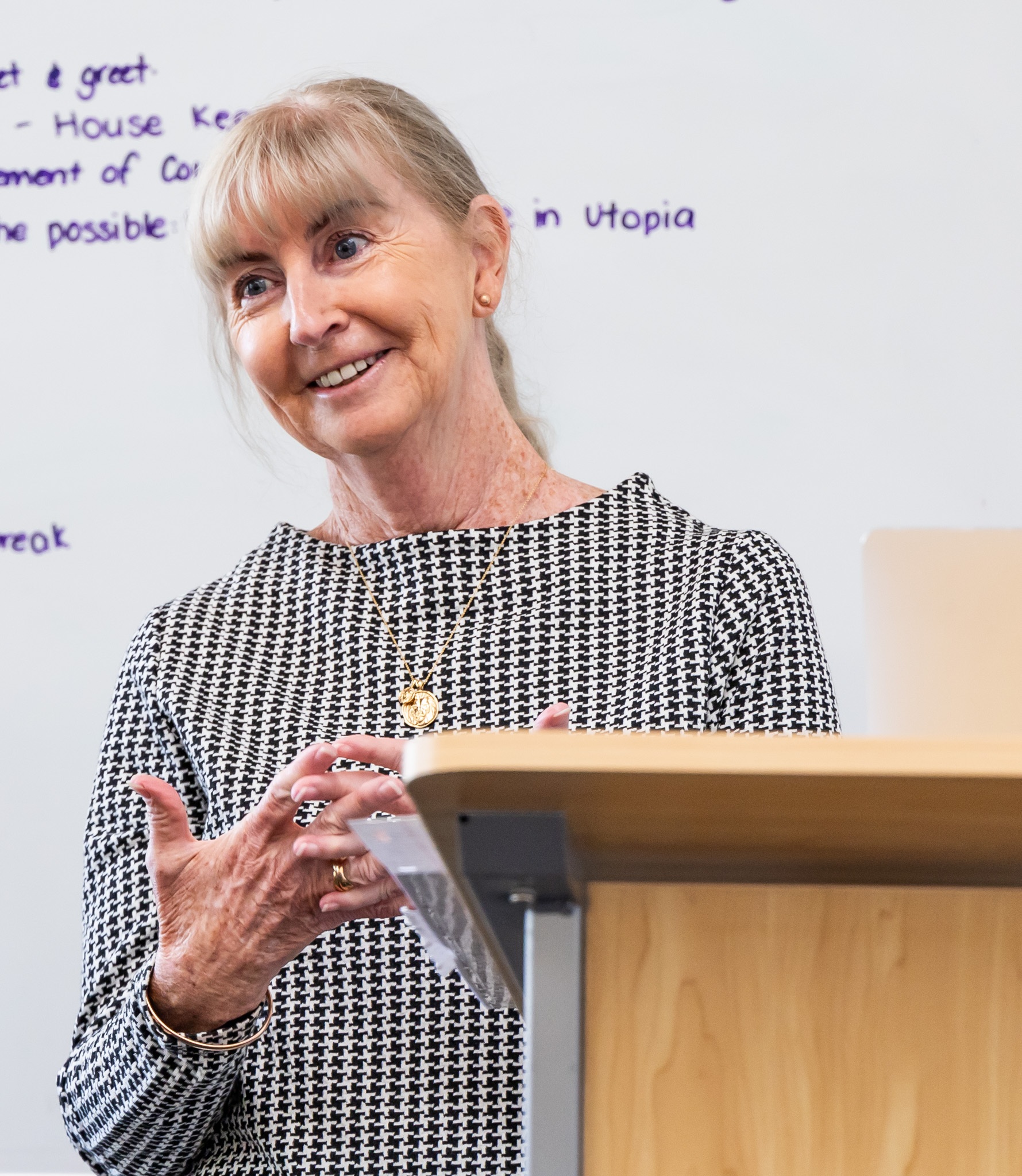
“There’s a skill set that seems to be missing in early childhood, and that’s around the growing of socially responsible citizens,” she explained.
“That is my focus, and that is what I believe we should be doing differently in early childhood now.”
CatholicCare Tasmania State Educational Leader, Out of School Hours Care, Janaya Lawson said Dr Harcourt was a captivating speaker, who sparked important discussions and left educators inspired and invigorated.
“The session is introducing a fresh perspective to their mindset, encouraging openness to novel concepts and innovative methods, embracing new ideas and approaches, and offering a reflection of their existing environments and practices in the hopes of the implementation of impactful changes aimed at enhancing the well-being and development of the children in their service,” she said.
“We are committed to the journey of refining our practices, expanding our expertise, and fostering superior outcomes for every child in our care.”
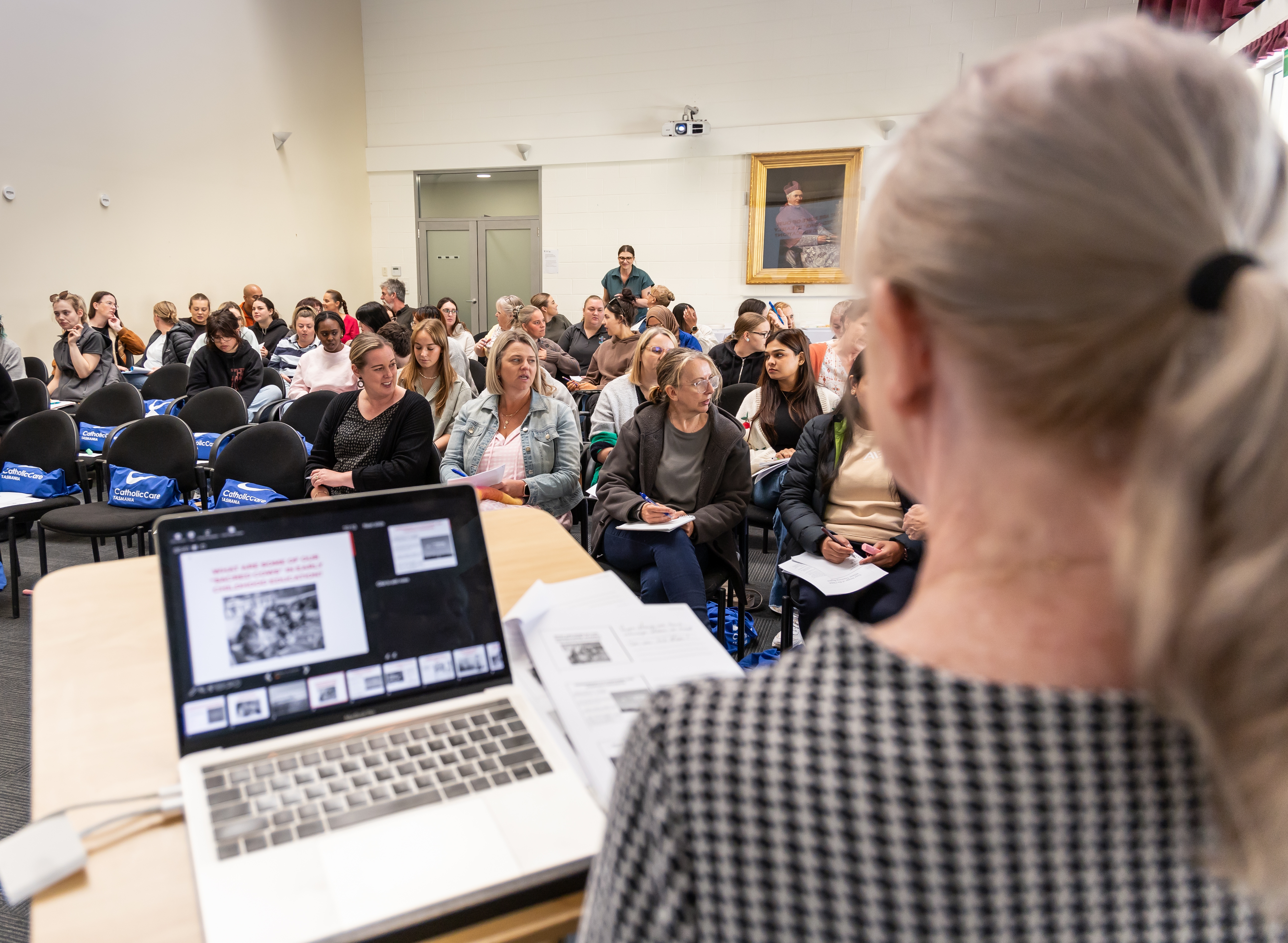
This year, CatholicCare early learning educators around the state will undertake an extra three days of enriching professional development sessions.
“They'll have the chance to engage with distinguished speakers like Deborah, delve into new pedagogical approaches, and foster team cohesion,” Ms Lawson said.
“By staying abreast of the latest practices and pedagogies, we demonstrate our unwavering support for our educators, investing additional time and resources to empower them to realise their full potential and excel as practitioners. This commitment to continuous improvement in services is paramount in delivering quality education and care for children.”
Dr Harcourt agreed, noting her focus was to disrupt people’s thinking, offer some ideas, and begin constructive dialogue.
“It is really about getting people to think differently. We can’t keep doing what we have always done because it is not working,” she said.
“That is the focus – how could you do things differently in early childhood so that we get better outcomes for children?”
Other news you may be interested in
CatholicCare Tasmania Educators must be courageous and “think outside the box” as they support children in becoming responsible social citizens.
That is the message of early childhood consultant Dr Deborah Harcourt, who conducted a training session with CatholicCare staff to share her research into child-centred decision-making.
“I have a strong focus on children’s well-being, and how we can focus on ensuring that we are growing good humans – children who know what it is like to be kind and generous and mindful; and who can be critical thinkers,” Dr Harcourt said.
“This is what we call leaning into 21st century skills.”
Dr Harcourt, who has worked in the field of early childhood education for the past 35 years in Australia, Singapore, China, Malaysia, India, Indonesia, UAE, UK, and Sri Lanka, said it was critically important to focus not just on early learning framework outcomes such as numeracy and literacy, but also on skills including self-awareness, impulse control, focus and attention, and social competence.

“There’s a skill set that seems to be missing in early childhood, and that’s around the growing of socially responsible citizens,” she explained.
“That is my focus, and that is what I believe we should be doing differently in early childhood now.”
CatholicCare Tasmania State Educational Leader, Out of School Hours Care, Janaya Lawson said Dr Harcourt was a captivating speaker, who sparked important discussions and left educators inspired and invigorated.
“The session is introducing a fresh perspective to their mindset, encouraging openness to novel concepts and innovative methods, embracing new ideas and approaches, and offering a reflection of their existing environments and practices in the hopes of the implementation of impactful changes aimed at enhancing the well-being and development of the children in their service,” she said.
“We are committed to the journey of refining our practices, expanding our expertise, and fostering superior outcomes for every child in our care.”

This year, CatholicCare early learning educators around the state will undertake an extra three days of enriching professional development sessions.
“They'll have the chance to engage with distinguished speakers like Deborah, delve into new pedagogical approaches, and foster team cohesion,” Ms Lawson said.
“By staying abreast of the latest practices and pedagogies, we demonstrate our unwavering support for our educators, investing additional time and resources to empower them to realise their full potential and excel as practitioners. This commitment to continuous improvement in services is paramount in delivering quality education and care for children.”
Dr Harcourt agreed, noting her focus was to disrupt people’s thinking, offer some ideas, and begin constructive dialogue.
“It is really about getting people to think differently. We can’t keep doing what we have always done because it is not working,” she said.
“That is the focus – how could you do things differently in early childhood so that we get better outcomes for children?”
Other news you may be interested in
Other news

